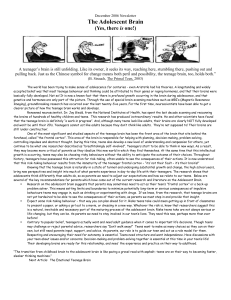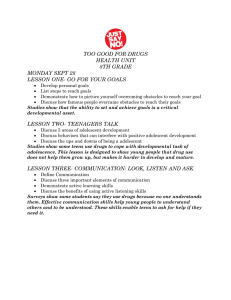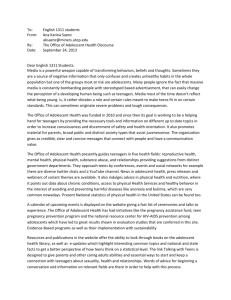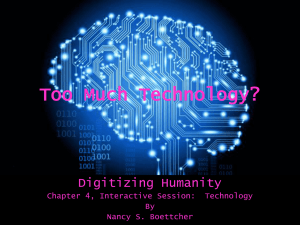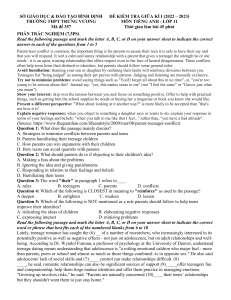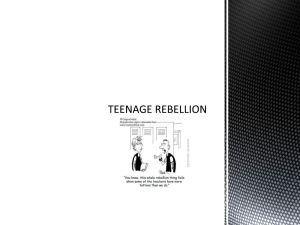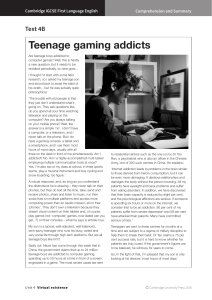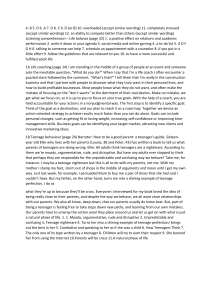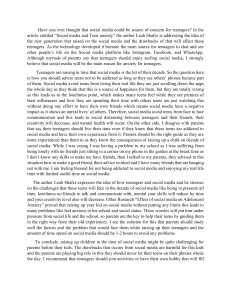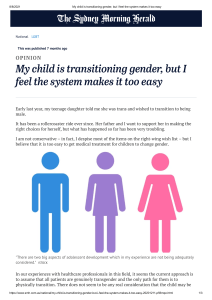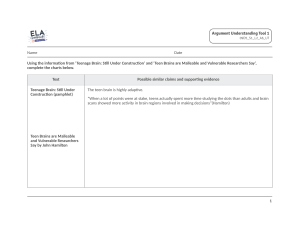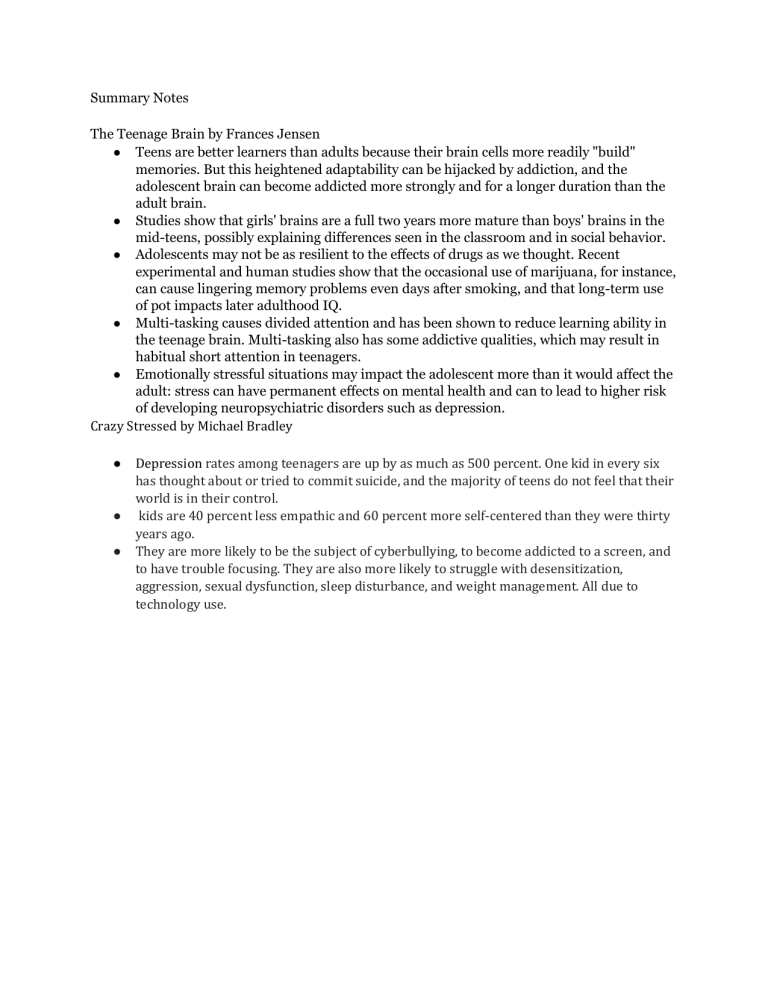
Summary Notes The Teenage Brain by Frances Jensen ● Teens are better learners than adults because their brain cells more readily "build" memories. But this heightened adaptability can be hijacked by addiction, and the adolescent brain can become addicted more strongly and for a longer duration than the adult brain. ● Studies show that girls' brains are a full two years more mature than boys' brains in the mid-teens, possibly explaining differences seen in the classroom and in social behavior. ● Adolescents may not be as resilient to the effects of drugs as we thought. Recent experimental and human studies show that the occasional use of marijuana, for instance, can cause lingering memory problems even days after smoking, and that long-term use of pot impacts later adulthood IQ. ● Multi-tasking causes divided attention and has been shown to reduce learning ability in the teenage brain. Multi-tasking also has some addictive qualities, which may result in habitual short attention in teenagers. ● Emotionally stressful situations may impact the adolescent more than it would affect the adult: stress can have permanent effects on mental health and can to lead to higher risk of developing neuropsychiatric disorders such as depression. Crazy Stressed by Michael Bradley ● ● ● Depression rates among teenagers are up by as much as 500 percent. One kid in every six has thought about or tried to commit suicide, and the majority of teens do not feel that their world is in their control. kids are 40 percent less empathic and 60 percent more self-centered than they were thirty years ago. They are more likely to be the subject of cyberbullying, to become addicted to a screen, and to have trouble focusing. They are also more likely to struggle with desensitization, aggression, sexual dysfunction, sleep disturbance, and weight management. All due to technology use.
